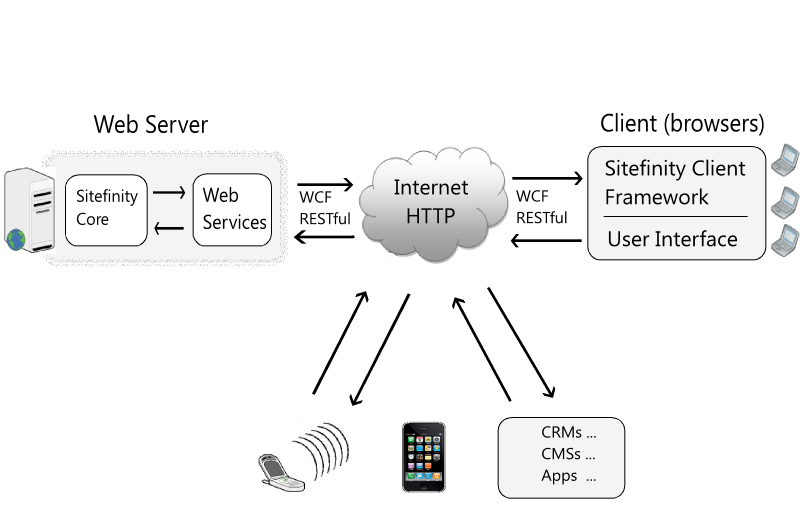STATEFUL SERVICES :-Want to store data or Data send from one form to another.
STATELESS SERVICES :-No storing of data or No data send from one form to another.
Stateless means that HTTP doesn't have built in support for states. i.e. you can't store.
A stateless service is one that provides a response after your request, and then requires no further attention. To make a stateless service highly available, you need to provide redundant instances and load balance them. OpenStack services that are stateless include
A stateful service is one where subsequent requests to the service depend on the results of the first request. Stateful services are more difficult to manage because a single action typically involves more than one request, so simply providing additional instances and load balancing will not solve the problem. For example, if the Horizon user interface reset itself every time you went to a new page, it wouldn't be very useful. OpenStack services that are stateful include the OpenStack database and message queue.

The basic web services platform is XML + HTTP. All the standard web services work using the following components.
TYPES OF WEB SERVICES :-
1. SOAP :- WSDL and XML
2.REST :- HTTP and JSON
A web service consists of several methods that are advertised for use by the general public. To make it possible for every application to access a web service, these services use web service protocols, including REST, SOAP, JSON-RPC, JSON-WSP, XML-RPC, and so on. A web service can exchange data in any format, but two formats are the most popular for data exchange between applications:
STATELESS SERVICES :-No storing of data or No data send from one form to another.
Stateless means that HTTP doesn't have built in support for states. i.e. you can't store.
A stateless service is one that provides a response after your request, and then requires no further attention. To make a stateless service highly available, you need to provide redundant instances and load balance them. OpenStack services that are stateless include
nova-api,
nova-conductor,
glance-api,
keystone-api,
neutron-api and
nova-scheduler.A stateful service is one where subsequent requests to the service depend on the results of the first request. Stateful services are more difficult to manage because a single action typically involves more than one request, so simply providing additional instances and load balancing will not solve the problem. For example, if the Horizon user interface reset itself every time you went to a new page, it wouldn't be very useful. OpenStack services that are stateful include the OpenStack database and message queue.

The basic web services platform is XML + HTTP. All the standard web services work using the following components.
TYPES OF WEB SERVICES :-
1. SOAP :- WSDL and XML
2.REST :- HTTP and JSON
A web service consists of several methods that are advertised for use by the general public. To make it possible for every application to access a web service, these services use web service protocols, including REST, SOAP, JSON-RPC, JSON-WSP, XML-RPC, and so on. A web service can exchange data in any format, but two formats are the most popular for data exchange between applications:
- XML. Standard format for data exchange among applications, in order to avoid datatype-mismatch problems.
- JavaScript Object Notation (JSON). Text-based open standard for representing data. Uses characters such as brackets ([]), braces ({}), colons (:), and commas (,) to represent data.







No comments:
Post a Comment